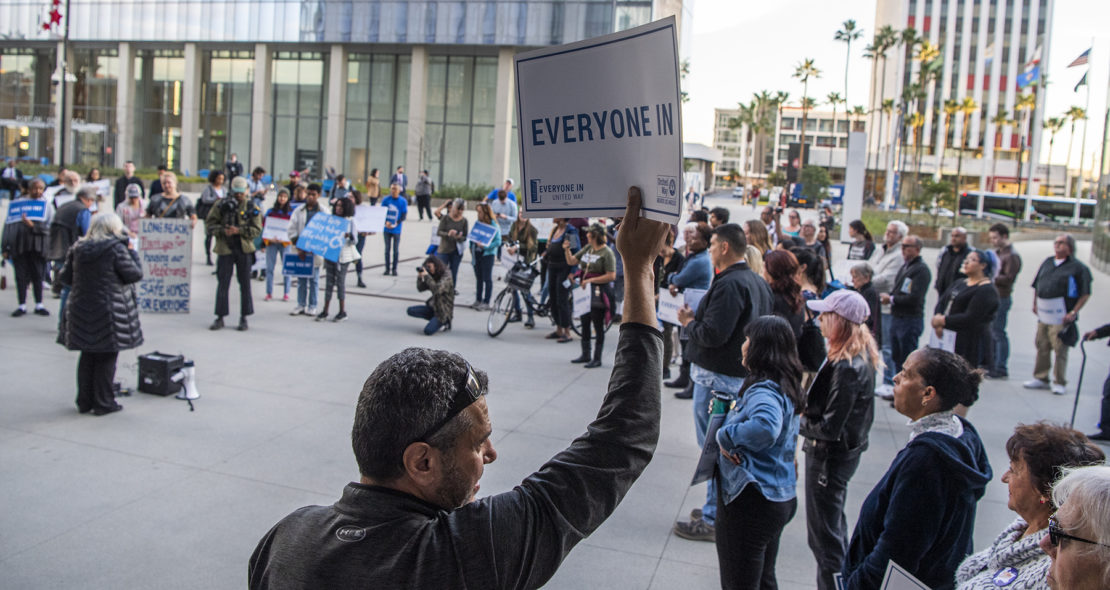The Long Beach City Council voted 5-4 Tuesday night against placing a proposed $298 million affordable housing and homeless services bond on the Nov. 3 ballot—a narrowly divided decision that followed hours of deliberation and public comment.
Instead, the council directed the city manager to continue exploring alternate solutions, including seeking out other sources of funding like state and federal dollars.
Had the bond item moved forward, the vote would have instructed the city attorney’s office to draft an ordinance that would place the bond on the November ballot. Once drafted, the council would have had to take a second vote to approve putting the item the ballot for the public.
But it failed to garner the necessary votes for even the first step.
The bond would have raised funds through increasing property taxes across the city, with $25 being charged for every $100,000 of assessed value. For example, a property valued at $500,000 would be assessed $125 annually, or about $10.41 per month.
The idea was championed by Councilman Rex Richardson, who had been polling voter sentiment on the bond proposal before Tuesday night’s vote. Richardson called the vote an opportunity for the council to give an “endorsement to democracy” by letting the voters decide how the city would fund affordable housing in the future.
Richardson said that average amount paid by a household in the city would be less than a monthly Netflix bill. He said the cost to address the homelessness and housing affordability crisis would only increase with the city’s inaction.

“We’re not imposing this; we’re asking voters to consider this,” Richardson said.
When it became clear that a majority of his counterparts would block his item from moving forward, he questioned if those council members were playing too much to their base by eschewing action on the housing affordability crisis in the city.
“What the hell are these people doing?” Richardson said.
Councilwoman Suzie Price, one of the five members who voted against Richardson, said she could not support the proposal if the council did not know how much funding was even necessary or if other funding sources could be tapped before placing the burden on Long Beach homeowners.
Price was joined by Council Members Daryl Supernaw, Stacy Mungo, Al Austin and Vice Mayor Dee Andrews.
Andrews, who initially signed on as a co-sponsor of the item, removed his name from the item before Tuesday’s meeting but offered no explanation for his change of heart.

Questions remained on both sides of the argument, one that played out over several hours.
How long the bond could have lasted was ambiguous. It could have been structured to stretch over a shorter period of time, which would result in higher payments by residents, or it could have been spread out to create smaller increases but also more of that money going toward interest payments.
Property owners across the city voiced opposition to the bond in writing and in person, saying that residents have already been exposed to too many taxes. Some questioned why the council had not acted more proactively to address housing affordability in the past decade.
The bond would have been the third tax increase Long Beach residents are set to decide in the coming year. In March, voters will decide whether to permanently extend a 1 percent sales-tax increase originally approved in 2016 and set to expire in 2027. Voters will also decide whether the city’s tax charged to hotel and short-term rental guests should be increased to fund improvements at the convention center and to support the arts.
Supporters of the housing bond measure held a rally outside City Hall before the meeting Tuesday night where about 75 supporters cheered for organizers who said that housing was a human right. They argued the bond could be an avenue to slow displacement that has pushed a growing number of people out of the city through rising rents.
“Unless there is a miracle, rents are going to continue to rise in Long Beach and we all know that’s a big factor that continues to fuel homelessness,” said Steve Be Cotte, president of the Long Beach Area Coalition for the Homeless.
Rents in the city have been increasing steadily over the past decade, which has also been the case across the entire state. In October, Gov. Gavin Newsom signed a statewide rent control law that will cap rents over the next 10 years to 5 percent annually, plus inflation.
Richardson vowed that even though the proposal was defeated Tuesday it would not be the last effort to address the housing affordability crisis in Long Beach.
“Hope is not lost,” Richardson said. “We will work together.”

